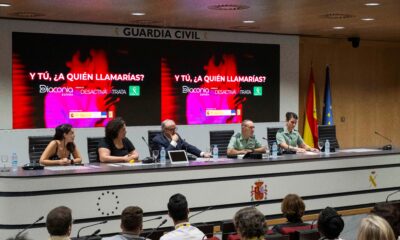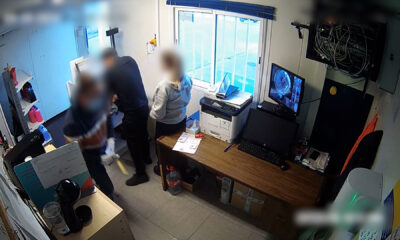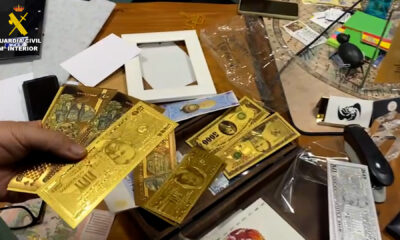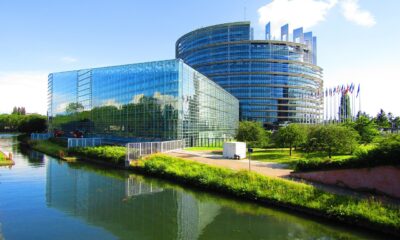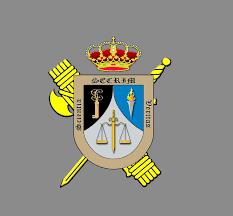

News
Thousands of scientists showcase their work
This Friday, thousands of researchers and scientists will disseminate their work through thousands of activities scheduled throughout Spain on the occasion of the European Researchers’ Night, an event that aims to bring society closer, in a pleasant way, to the benefits that the advancement of science brings, as well as its impact on daily life.
The National Museum of Natural Sciences (MNCN-CSIC) joins the European Researchers’ Night, focusing on the measures of the European Union to fight against global change. The institution will celebrate with free activities adapted to all audiences that include a scientific gymkhana and camping at the museum on the night of September 29, continuing the next day with workshops on endangered species such as amphibians.
The celebration begins on Friday from 7:00 p.m. to 9:00 p.m. with the now classic scientific gymkhana with renewed tests and activities. Later, starting at 9:30 p.m., participants will be able to become real scientists through fun workshops on palaeontology and biology, as well as live the experience of sleeping in the MNCN rooms.
To say goodbye to the party, on Saturday, September 30, the workshops ‘Toads, salamanders and newts’ and ‘Animals of the world’ will be held from 12:00 to 1:00 p.m. and from 1:00 p.m. to 2:00 p.m., respectively.
The Higher Council for Scientific Research (CSIC) is dedicated to the European Researchers’ Night, a great dissemination event in which science comes to meet citizens in towns across the continent. The CSIC centres and delegations have prepared more than 150 activities, free and aimed at all ages, which will be held around Friday, September 29 in nine autonomous communities: Andalusia, Aragon, the Canary Islands, Cantabria, Catalonia, Community of Madrid, Valencian Community, Galicia and Balearic Islands.
Concerts, escape rooms, scientific gymkhanas, micro-talks, workshops or dramatized shows are included in this CSIC programming. The proposals cover all areas of knowledge, but this year marine sciences will have special relevance thanks to OceanNight.
Specifically, in Madrid the CSIC organises the event ‘Everything science. The CSIC Night at 12’, which is held at the 12 de Octubre University Hospital. There will be interactive demonstrations, talks and workshops on materials science, nanotechnology, biotechnology, food science, physics, mathematics and medical research.
The public will be able to enjoy a gymkhana about the Nobel women, a bio-escape, workshops for people with hearing impairment and a visit to the hospital’s Simulation Centre facilities, normally closed to the public. The culmination of the day will be a concert by the Madrid band Schizzofunk.
The Royal Botanical Garden will host activities aimed at the educational community and society in general within two projects: ‘Madrid Night’ and ‘Ocean Night’. In the morning, a dozen researchers from the Royal Botanical Garden will highlight before the educational community the importance that botany has in the field of science by interrelating with many other subjects and covering the broad study of the different forms of life of the nature.
Researchers who work in the two research departments (Biodiversity and Conservation and Mycology), as well as research support staff from the different Research, Collections, Garden and Scientific Culture units, will explain throughout Friday morning what the day is like. every day at the Royal Botanical Garden, how their scientific tasks are structured and what tools they use to carry out their research. The students and teachers participating in the activity will get to know the Botanical Garden and the research work carried out there through different visits to various spaces of the RJB.
In a double session of scientific dissemination, in the afternoon of September 29, and collaborating with the CSIC Maritime Research Institute, which has its headquarters in Vigo (Pontevedra), it will be offered, within the framework of the ‘Ocean Night ‘, the musical event ‘Neuston 3: In concert with the ocean’ by the Galician artist Abraham Cupeiro in the Cavanilles chair of the Villanueva Pavilion.
At the Madrid Student Residence, the colloquium ‘The five EU Missions seen by IMDEA researchers’ will take place on Friday, between 6:00 p.m. and 7:30 p.m., in which Abraham Esteve (IMDEA Agua), Lidia will participate. Daimiel (IMDEA Food), Adriana Souza (IMDEA Energy), María de Nicolás (IMDEA Materials), Valle Palomo (IMDEA Nanoscience), Guillermo Suárez-Tangil (IMDEA Networks) or Facundo Molina (IMDEA Software).
CaixaForum Madrid also joins this celebration with a “wide range” of activities, scientific shows, entertaining talks and screenings, practical experiments, workshops and project exhibitions, among others, with the aim of bringing science closer to children, young people and the public. Big audience. Thus, ESCIENCIA, the AECC or M adrid+D will present their first-hand research in a “very informative and entertaining” way.
For its part, the Faculty of Fine Arts of the Complutense University of Madrid hosts a series of workshops to learn, from CSIC research staff, how engraving, sculpture and other artistic techniques are used to put faces on dinosaurs, bears and other creatures of the past.
At the Rey Juan Carlos University, this year the host will be the Higher School of Experimental Sciences and Technology and the motto of the event is ‘Let’s take care of our soils for food security and climate change’. In this sense, different lines of research will be shown based on the study of the current situation of soils, from the fields of Geology, Biology, Hydrology or Environmental Geochemistry; and its relationship with food security and the urgent need for sustainable soil management in the fight against climate change will be addressed.
The University of Zaragoza will celebrate on Friday at the Paraninfo of Zaragoza and in the centre of Huesca (Plaza de Navarra and Casino) and Teruel (Plaza del Torico and Provincial Museum) between 5:00 p.m. and 9:00 p.m. an event that includes a research fair with experiments, games, demonstrations, talks, coffee with scientists, European corner, hackathon, monologues and 9 scientific walks.
In Andalusia, more than 3,000 researchers will disseminate their work on September 29, through almost 1,000 activities scheduled in the streets of the eight Andalusian provinces. The forecast is that this year around 80,000 people will be able to participate in the scheduled events.
In Cantabria, nearly 300 scientists will show their lines of research in different activities. For this, 29 stands will be set up from 5:00 p.m. to 9:00 p.m. in Plaza Pombo de Santander.
On the occasion of this celebration, the Public University of Navarra offers 32 free outreach activities for all audiences. The activities, which include walks, tastings, talks or comic monologues, are led by nearly 80 scientists from the UPNA.
The post Thousands of scientists showcase their work appeared first on Spain Today – Breaking Spanish News, Sport, and Information.
-

 News2 weeks ago
News2 weeks agoOlive oil to join zero rate IVA from July
-

 Court News2 weeks ago
Court News2 weeks agoFour years in prison for hitting woman who didn´t want to have sex without a condom
-
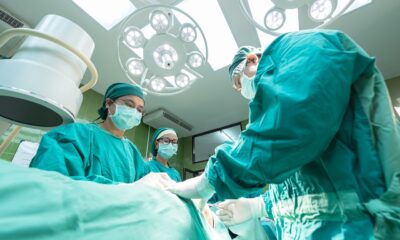
 Health2 weeks ago
Health2 weeks agoSpain breaks bone marrow transplant record
-
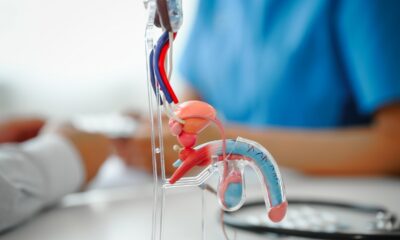
 Health2 weeks ago
Health2 weeks agoImprove Your Quality of Life: Discover How Robotic Surgery for Prostate Cancer Works and Its Benefits


